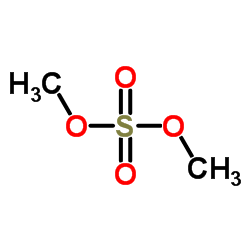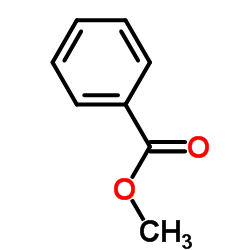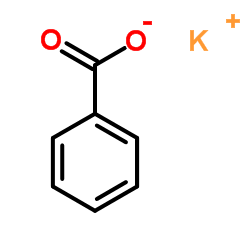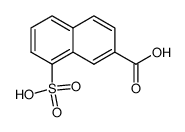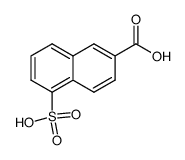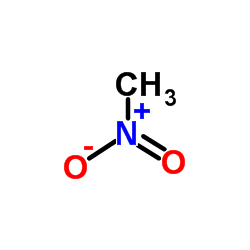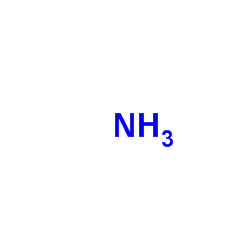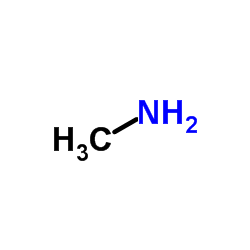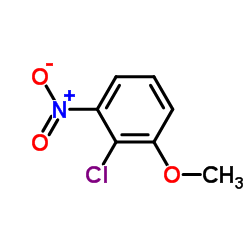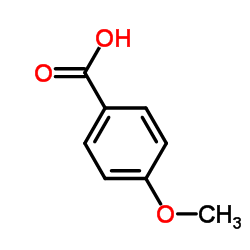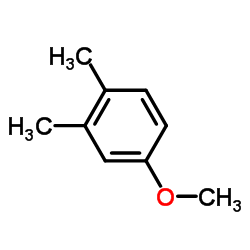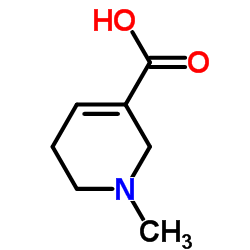562-54-9
| Name | Methylsulfuric acid potassium salt |
|---|---|
| Synonyms |
potassium,methyl sulfate
MFCD00040472 UNII:9B0JF05O1C Methyl potassium sulfate Methyl sulfate potassium salt Sulfuric acid, methyl ester, potassium salt (1:1) EINECS 209-231-3 potassium methyl sulphate potassium methylsulfate Potassium methyl sulfate |
| Density | 1.602g/cm3 |
|---|---|
| Melting Point | 212-217 °C |
| Molecular Formula | CH3KO4S |
| Molecular Weight | 150.195 |
| Exact Mass | 149.938904 |
| PSA | 74.81000 |
| LogP | 0.17380 |
Synonym:Methyl Potassium Sulfate; Potassium Methyl Sulfat Section 2 - COMPOSITION, INFORMATION ON INGREDIENTS
Risk Phrases: None Listed. Section 3 - HAZARDS IDENTIFICATION EMERGENCY OVERVIEW
The toxicological properties of this material have not been fully investigated. Potential Health Effects Eye: May cause eye irritation. Skin: May cause skin irritation. Ingestion: May cause digestive tract disturbances. Inhalation: May cause respiratory tract irritation. Chronic: Not available. Section 4 - FIRST AID MEASURES Eyes: Flush eyes with plenty of water for at least 15 minutes, occasionally lifting the upper and lower eyelids. Get medical aid immediately. Skin: Get medical aid. Flush skin with plenty of water for at least 15 minutes while removing contaminated clothing and shoes. Remove contaminated clothing and shoes. Ingestion: If victim is conscious and alert, give 2-4 cupfuls of milk or water. Never give anything by mouth to an unconscious person. Get medical aid immediately. Inhalation: Remove from exposure and move to fresh air immediately. If not breathing, give artificial respiration. If breathing is difficult, give oxygen. Get medical aid. Notes to Physician: Section 5 - FIRE FIGHTING MEASURES General Information: As in any fire, wear a self-contained breathing apparatus in pressure-demand, MSHA/NIOSH (approved or equivalent), and full protective gear. During a fire, irritating and highly toxic gases may be generated by thermal decomposition or combustion. Extinguishing Media: Use agent most appropriate to extinguish fire. Section 6 - ACCIDENTAL RELEASE MEASURES General Information: Use proper personal protective equipment as indicated in Section 8. Spills/Leaks: Clean up spills immediately, observing precautions in the Protective Equipment section. Sweep up or absorb material, then place into a suitable clean, dry, closed container for disposal. Avoid generating dusty conditions. Provide ventilation. Section 7 - HANDLING and STORAGE Handling: Wash thoroughly after handling. Remove contaminated clothing and wash before reuse. Minimize dust generation and accumulation. Avoid contact with eyes, skin, and clothing. Avoid ingestion and inhalation. Use with adequate ventilation. Storage: Store in a cool, dry, well-ventilated area away from incompatible substances. Keep containers tightly closed. Section 8 - EXPOSURE CONTROLS, PERSONAL PROTECTION Engineering Controls: Use adequate ventilation to keep airborne concentrations low. Exposure Limits CAS# 562-54-9: Personal Protective Equipment Eyes: Wear appropriate protective eyeglasses or chemical safety goggles as described by OSHA's eye and face protection regulations in 29 CFR 1910.133 or European Standard EN166. Skin: Wear appropriate protective gloves to prevent skin exposure. Clothing: Wear appropriate protective clothing to prevent skin exposure. Respirators: Follow the OSHA respirator regulations found in 29 CFR 1910.134 or European Standard EN 149. Always use a NIOSH or European Standard EN 149 approved respirator when necessary. Section 9 - PHYSICAL AND CHEMICAL PROPERTIES Physical State: Crystals Color: white Odor: Not available. pH: Not available. Vapor Pressure: Not available. Viscosity: Not available. Boiling Point: Not available. Freezing/Melting Point: 212.0 - 217.0 deg C Autoignition Temperature: Not available. Flash Point: Not available. Explosion Limits, lower: Not available. Explosion Limits, upper: Not available. Decomposition Temperature: Solubility in water: soluble in water Specific Gravity/Density: Molecular Formula: CH3KO4S Molecular Weight: 150.20 Section 10 - STABILITY AND REACTIVITY Chemical Stability: Stable under normal temperatures and pressures. Conditions to Avoid: Incompatible materials, dust generation, strong oxidants. Incompatibilities with Other Materials: Strong oxidizing agents. Hazardous Decomposition Products: Irritating and toxic fumes and gases. Hazardous Polymerization: Has not been reported Section 11 - TOXICOLOGICAL INFORMATION RTECS#: CAS# 562-54-9 unlisted. LD50/LC50: Not available. Carcinogenicity: Sulfuric acid, monomethyl ester, potassium salt - Not listed by ACGIH, IARC, or NTP. Section 12 - ECOLOGICAL INFORMATION Section 13 - DISPOSAL CONSIDERATIONS Dispose of in a manner consistent with federal, state, and local regulations. Section 14 - TRANSPORT INFORMATION IATA Not regulated as a hazardous material. IMO Not regulated as a hazardous material. RID/ADR Not regulated as a hazardous material. Section 15 - REGULATORY INFORMATION European/International Regulations European Labeling in Accordance with EC Directives Hazard Symbols: Not available. Risk Phrases: Safety Phrases: S 24/25 Avoid contact with skin and eyes. WGK (Water Danger/Protection) CAS# 562-54-9: No information available. Canada CAS# 562-54-9 is listed on Canada's NDSL List. CAS# 562-54-9 is not listed on Canada's Ingredient Disclosure List. US FEDERAL TSCA CAS# 562-54-9 is listed on the TSCA inventory. SECTION 16 - ADDITIONAL INFORMATION N/A |
| Hazard Codes | T: Toxic; |
|---|---|
| Risk Phrases | R20/22;R36/37/38;R45 |
| Safety Phrases | 53-45-36/37/39-26 |
| WGK Germany | 3 |
| RTECS | MJ4500000 |
|
~% 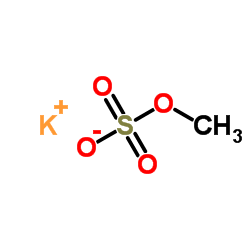
562-54-9 |
| Literature: Comptes Rendus Hebdomadaires des Seances de l'Academie des Sciences, , vol. 169, p. 536 |
|
~% 
562-54-9 |
| Literature: Recueil des Travaux Chimiques des Pays-Bas, , vol. 113, # 9 p. 403 - 410 |
|
~% 
562-54-9 |
| Literature: Recueil des Travaux Chimiques des Pays-Bas, , vol. 113, # 9 p. 403 - 410 |
|
~% 
562-54-9 |
| Literature: Comptes Rendus Hebdomadaires des Seances de l'Academie des Sciences, , vol. 169, p. 536 |
| Precursor 4 | |
|---|---|
| DownStream 10 | |


